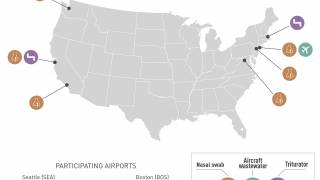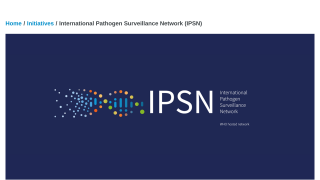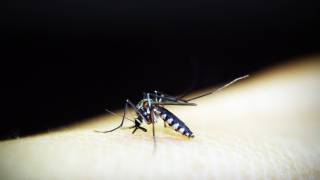Tracking Infectious Diseases in Central America & Caribbean

To better detect, understand, and respond to emerging infectious disease threats such as dengue, the U.S. Centers for Disease Control and Prevention (CDC) is supporting research studies to better understand acute febrile illnesses (AFIs) in Belize, Guatemala, and the Dominican Republic.
Announced on October 21, 2019, this international team including researchers from the CDC, Baylor College of Medicine, Universidad del Valle de Guatemala, and Brigham and Women’s Hospital, will create the network using a coordinated approach to detect and manage disease threats.
This is important news because if an AFI outbreak occurs, it has the potential to overwhelm public health systems in a matter of weeks, says the CDC.
Furthermore, enhancing the understanding of AFIs helps healthcare providers make better diagnoses and provide more appropriate treatments.
Currently, many people with AFIs don’t receive a confirmed diagnosis, and these studies can help better define what is causing illness and may even identify new causes of illness that were previously not recognized, said the CDC in a press release.
“The current widespread and severe outbreak of dengue that’s spreading across Guatemala and other Central American countries underscores the urgent need for the studies and surveillance network,” said Dr. Emily Zielinski-Gutierrez, director of the CDC-Central America Regional Office.
AFIs, which include chikungunya, Zika, Chagas disease, and malaria, are one of the most common reasons people seek health care and can be caused by viruses, bacteria, parasites or fungi that people inhale, eat or drink from contaminated food or water, or are exposed to by contact with animals, including insects.
The worldwide outbreak of Dengue Fever is a realtime AFI example outbreak.
According to the latest Pan American Health Organization data, Guatemala has reported more than 35,000 cases of dengue so far in 2019 and the Dominican Republic more than 12,000 cases, resulting in 78 reported deaths this year from the two countries.
“The development of a comprehensive surveillance system that improves the timeliness and effectiveness of detecting and responding to infectious disease threats is critical to reducing the impact and spread of disease within and across borders and ultimately improving health outcomes among vulnerable populations in the Central America and Caribbean region and globally,” concluded Dr. Zielinski-Gutierrez.
During the study period, people who report to a healthcare facility within the surveillance network with symptoms of an AFI will be asked to provide consent to allow information about their (or their child’s) age, gender, symptoms, and results of diagnostic tests to be entered into the surveillance system.
Investing in surveillance can help policymakers and public health practitioners better understand the burden of infectious diseases, the factors associated with AFIs, and the risks that AFIs pose to their populations.
Surveillance data can make public health response more effective and efficient, as well as help focus resources on areas that can have the greatest impact on improving health, safety, and security within and beyond national borders.
The researcher partners include:
- The CDC’s Center for Global Health works with partners to tackle AFIs and to produce the greatest global health impact.
- Baylor College of Medicine located in Houston, Texas is recognized as health sciences university and is known for excellence in education, research and patient care.
- The Center for Health Studies (CHS) is one of 11 centers within the Research Institute at Universidad del Valle de Guatemala (UVG) that aims to produce research outcomes relevant to the development of the country. UVG is a private university that was founded in 1966 to advance modern science, technology, and education, and has collaborated with the U.S. CDC-Central American Region office and the National Ministry of Health for more than 40 years.
- Brigham and Women’s Hospital is a primary Harvard Medical School teaching hospital and a global leader in clinical care and biomedical research.
Whether disease starts at home or abroad, are curable or preventable, chronic or acute, or from human activity or deliberate attack, the CDC responds 24/7 to America’s most pressing health threats. The CDC is headquartered in Atlanta and has experts located throughout the United States and the world, protecting America’s health, safety and security.
International Travel news published by Vax-Before-Travel
Our Trust Standards: Medical Advisory Committee
























